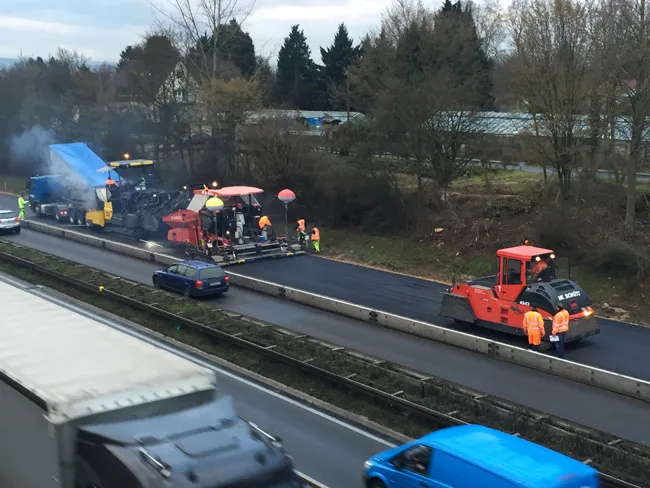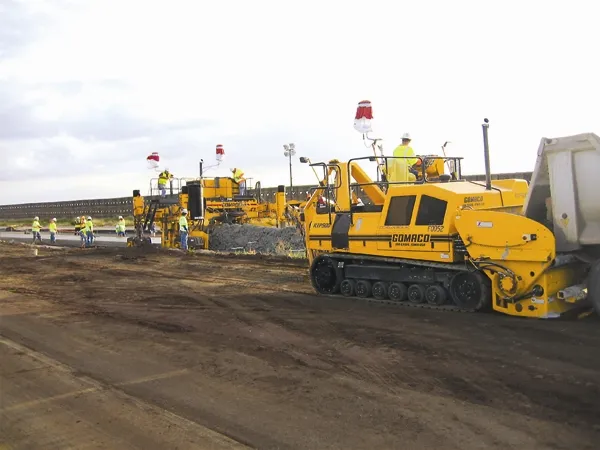
Simex ART technology focuses on surface improvements to address road deterioration. It uses existing materials and does not require the removal of milled material or the addition of virgin bituminous mix. It avoids the interruption of vehicular traffic, ensuring the road is passable immediately after restoration.
During milling, the equipment uses an eco-friendly chemical rejuvenator to cold-recycle the bituminous aggregate produced. Specifically, ART consists of two drums; the first for milling and mixing and the second for crushing and disintegration.
While working, the ART 1000 mills the deteriorated road section and injects measured quantities of rejuvenators to match working depth and carrier speed. It reduces the milled material to the correct grain size and then mixes the materials, leaving the recycled bituminous mix ready for compaction.
After regeneration, the bituminous mix is deposited into the milled track and is ready to be levelled and compacted with a roller or vibrating plate. Simex says that, as in the case of repairs after the installation of fibre optics, the presence of cement mortars in limited proportions, compared to the total volume of milled asphalt, does not compromise the success of the final restoration.
The Italy-based company adds that, in addition to the logistical advantages on-site and in terms of traffic flow, the ART 1000 technology offers other key benefits. These include reduction of costs associated with the purchase and transport of new raw materials, utilising exclusively the bituminous mix available on-site, the recovery and regeneration of 100% of the on-site material and fast and durable surface restoration.
In the past year, Simex has enhanced the onboard electronics of the ART 1000 to better meet the daily needs of road construction sites.








